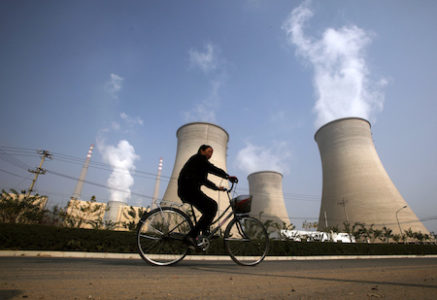 A new Paulson Institute paper argues that China should tackle air pollution and climate change at the same time, for the sake of economic efficiency—and the health of the planet. In “Double Impact: Why China Needs Coordinated Air Quality and Climate Strategies,” MIT’s Valerie Karplus makes these points:
A new Paulson Institute paper argues that China should tackle air pollution and climate change at the same time, for the sake of economic efficiency—and the health of the planet. In “Double Impact: Why China Needs Coordinated Air Quality and Climate Strategies,” MIT’s Valerie Karplus makes these points:
- Current air pollution strategies lead to perverse results. Because it’s cheaper to use coal scrubbers (pollution control devices that remove sulfur dioxides) at coal-fired plants than it is to switch over to renewable fuels, there is little incentive to stop using coal.
- Coal scrubbing does next to nothing to reduce CO2 emissions. In fact, air pollution controls—such as scrubbers—actually may be exacerbating climate issues resulting from carbon emissions.
- Cleanup equipment use could actually increase CO2 emissions. If scrubber equipment is powered by coal-based energy, then it could increase CO2 emissions even as air quality improves. Such air pollution mitigation would lock in continued reliance on a carbon-intensive fuel.
- A price on carbon emissions would incentivize a reduction in coal use. It will also reduce the extent of end-of-pipe air pollution controls needed to achieve air quality goals.
- Putting a price on carbon emissions would help China achieve its climate goals. An emissions trading system or tax would be the best way to translate China’s climate pledge into clear, price-based incentives to decarbonize the economy through 2030 and beyond.


